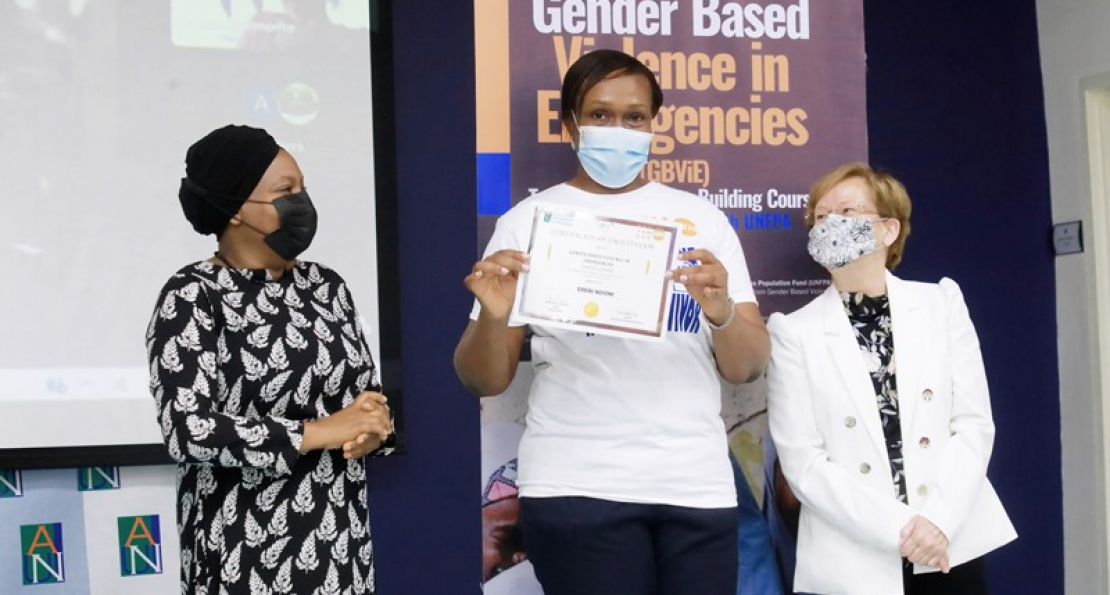As a Development University, AUN focuses research and learning outcomes to finding solutions to problems in the local community. The University's partnership with the United Nations Populations Funds (UNFPA) to fight against Gender-based Violence (GBV) therefore aims to educate and empower the people in the Northeast region where the insurgency has led to the escalation of acts of violence against vulnerable members of the community.
Assistant Professor in the AUN School of Law, and one of the resource persons in the AUN-UNFPA Gender-based Violence in Emergencies (GBViE) course, Professor Erebi Ndoni has shed more light on the content and expected outcomes of the program which began in 2019.
In an interview published in BusinessDay newspaper, on July 18, 2021, Professor Erebi, explained that AUN's pedigree in community work earned it the privilege to become the choice institution partnering with the United Nations Populations Fund (UNFPA) in West Africa to develop and rollout a course dedicated to fighting against Gender-Based Violence (GBV), violence which has escalated in recent times due to the insurgency and the Covid-19 lockdown.
Twenty participants took part in the program's first cohort in November 2019 while the second cohort, in July 2020 with 30 course participants from within and outside Nigeria, was held virtually due to Covid-19 restrictions. Course participation is free for those selected after a rigorous screening process.
The AUN-UNFPA course, Professor Erebi said, educates participants about legal responses to gender-based violence. Medical practitioners, from the state and outside the state can learn health-related responses to victim recovery, in particular, how to gather evidence from a survivor of gender-based violence, and to how to ensure effective prosecution against perpetrators.
The third Cohort was held in March 2021 with 25 participants, while 28 were trained in the fourth Cohort in July 2021.
Prof. Erebi went further to talk about how participants are taught to gather and use data on gender-based violence, sexual exploitation, and harassment, and also how to organize trips for more enlightenment on gender-based violence. They've taken trips to the International Federation of Women Lawyers for more information on women's and children's rights. They also took a trip to a Forensic lab in Adamawa state, to hospitals, to Internally Displaced Persons (IDPs) camps, and to other places for more enlightenment regarding GBV. The participants are given the opportunity to get more training after the 2 weeks, and a certificate making them a certified gender-based specialist, someone who can carry out training and work in the field as a member of the community of practice, and who will monitor their progress and support them at every stage.
"If they (participants) are interested in taking it further; they have three months to write research in any thematic areas of their choice", Dr. Erebi said.
Participants are carefully selected from different sectors, organizations, professions based on their interests and motivational statements, she said.
President Margee Ensign has commended the program's resource persons and the UNFPA for their work in GBViE, which she said embodies the university's development philosophy.


